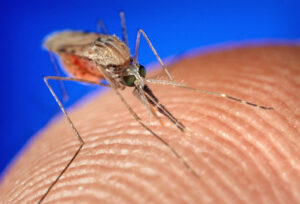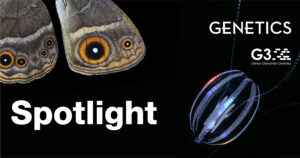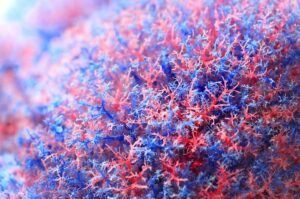Enter your address to receive notifications about new posts to your email.
Articles tagged Human Disease
(81 results)
-
Science & Publishing
New editors join GENETICS, G3 editorial boards
Several new editors are joining the GSA Journals. We’re excited to welcome Ricardo Zayas to the GENETICS editorial board under the Molecular Genetics of Development section, and on the G3: Genes|Genomes|Genetics board, we welcome Polly Campbell, Kevin Vogel, Joe Parker, and Ricardo Mallarino. Ricardo Zayas Associate Editor Ricardo Zayas is a Professor of Biology at…
-
Science & Publishing
Worms and Flies Provide Key Clues to Medical Mystery
This article is part of a series of posts outlining the history and impact of research in experimental organisms. The series is developed in collaboration with the GSA Public Communications and Engagement Committee. By the time Bertrand Might was six months old, it was clear something was amiss. His muscles weren’t developing normally; he was…
-
Early Career Leadership Spotlight: Anna Moyer
We’re taking time to get to know the members of the GSA’s Early Career Scientist Committees. Join us to learn more about our early career scientist advocates. Anna Moyer Accessibility Subcommittee University of Alabama at Birmingham Research Interest: I don’t remember very much about the birth of my little brother. I remember the way the light…
-
Gene-drive strain of African malaria mosquito holds up against mutations
When female Anopheles mosquitoes take a blood meal from someone with malaria, a tiny Plasmodium parasite enters the mosquito’s digestive tract. That parasite can invade the mosquito’s salivary tissues, so when the insect takes another blood meal, the intruder can slip into the next human host and start a new malaria infection. Malaria is a…
-
GENETICS articles recognized with Editors’ Choice Awards
Congratulations to the winners of the Editors’ Choice Awards for outstanding articles published in GENETICS in 2021! The journal’s Editorial Board considered a diverse range of articles, finding many papers worthy of recognition. After much deliberation, they settled on one exceptional article for each of the three award categories: molecular genetics, population and evolutionary genetics,…
-
For this human pathogen, agriculture may be a source of antifungal resistance
Aspergillus fumigatus isolated from clinical settings is resistant to agricultural fungicides. Infections have long been a deadly problem for hospital patients. Though modern medicine has an impressive array of antimicrobial drugs at its disposal, pathogens continue to evolve resistance, creating ever more dangerous infections as the microbial “arms race” escalates. Overprescribing of antibiotics is one…
-
“You work on what?”: Talking (basic) science
For me, these last few years have driven home how crucial—and yet how challenging—it is for scientists to communicate how we know what we know and why we do what we do. When it comes to explaining our own work, it can be especially tricky to convey the value of basic research to listeners who…
-
To see what everyone sees but think what no one has thought, you need diversity
SASTA President Rana Dajani discusses the need for diversity and introduces SASTA’s mission to advance science and technology in the Arab world. The Society for the Advancement of Science and Technology in the Arab World (SASTA) is a non-profit organization in the US that strives to mobilize and catalyze the engagement of scientists, professionals, NGO’s, academic…
-
Naturally occurring small molecules correct mutant proteins in living cells
Yeast screens explore the therapeutic potential of chemical rescue. Anyone who’s worked in a lab knows that sinking feeling of discovering that the temperature of an incubator, carefully set the night before, has crept up high enough to ruin the experiment. While such a mishap usually spells disaster, occasionally, it can lead to an unexpected…
-
How an anti-fungal medication can stop new blood vessel formation
Discovery of thiabendazole target explains vascular disrupting action. Even after hundreds of millions of years of evolution, some yeast genes persist mostly intact in humans and other vertebrates. Despite the huge differences between yeast and humans, these genes perform the same molecular function in both organisms but have been adapted over time into new contexts.…
-
Advancing both basic science and medicine by studying human disease genes in model organisms
GSA President Hugo Bellen announces a new seminar series on tools and resources for exploring gene function across organisms. Some of us are worried about the future of the research enterprise, especially funding support for science in our favorite model organism. Why worry? One of the main drivers of this concern is that some believe…












